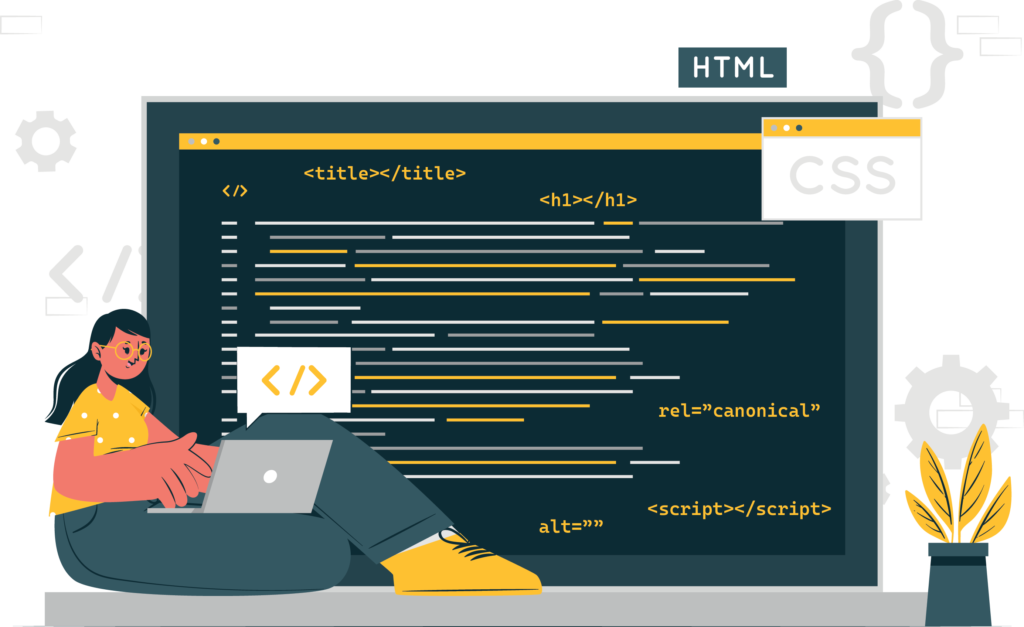

Here are my observations:
Technical SEO may be mastered by anyone, even if they are not a developer with knowledge of HTML, CSS, JavaScript, or Python. Technical SEO success would primarily depend on having a very basic understanding of HTML and JavaScript.
Alright, so let’s break this down:
You don’t have to learn every coding language that exists, even if they are all constantly evolving. Staying on top of every new framework and upgrade may be difficult, even for web developers.
The primary goals of an SEO specialist should be to comprehend website functionality and search engine optimization. It’s important to understand web standards and best practices rather than coding.
What abilities then should you prioritize?
✅ Understanding Web Standards:
It’s important to follow best practices for coding and structuring a website to ensure its accessible and SEO-friendly.
For example, using semantic HTML tags (like <header>, <main>, <article>, <footer>) not only improves the readability of your code but also helps search engines understand the structure and content of your pages, leading to better indexing and ranking.
✅ Page Structure Best Practices:
SEO requires an understanding of a webpage’s proper elements and layout. For example, a webpage’s <head> section should have meta tags, title tags, and links to CSS stylesheets, but it shouldn’t have a lot of JavaScript or user-facing content. Including large scripts in the <head> will cause the website to load more slowly, which will be bad for SEO and the user experience. It is recommended that user-generated material be arranged appropriately using headers and paragraphs inside the <body> element to facilitate search engines’ crawling and indexing of the page.
✅ Understanding How Browsers Work and Render Pages:
In order to display a website on the screen, browsers must read and understand its code. Understanding this procedure is crucial to SEO. In the event that a page loads content through JavaScript and that JavaScript is blocked or delayed, users and search engines may not be able to see critical portions of the page. This may result in a bad user experience or problems with indexing. Understanding the rendering process can help you optimize the page for search engines and people by ensuring that important material loads and displays appropriately.
✅ JavaScript Troubleshooting:
Identifying and fixing errors that stop scripts from operating properly on a webpage is the example of debugging JavaScript difficulties. An error in the script or a conflict with other code, for instance, could be the cause of a JavaScript function that loads interactive content not functioning. You can identify the problem by looking for error messages in the console using browser developer tools (like Chrome DevTools). After that, you could suggest changes like fixing syntactic mistakes, addressing script compatibility problems, or making sure scripts are loaded in the right sequence. Interactive elements and dynamic content should perform properly to enhance user experience and avoid potential SEO problems caused by JS functionality. This may be ensured through effective troubleshooting.
Technical SEO is ultimately about troubleshooting and performance-enhancing website optimization; it isn’t always about coding. You’ll be well on your way to success in the profession if you concentrate on expanding your knowledge in these areas!